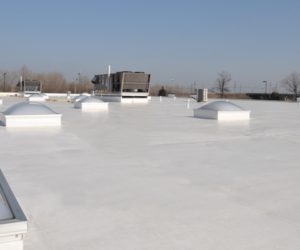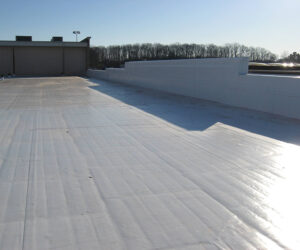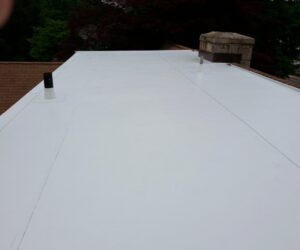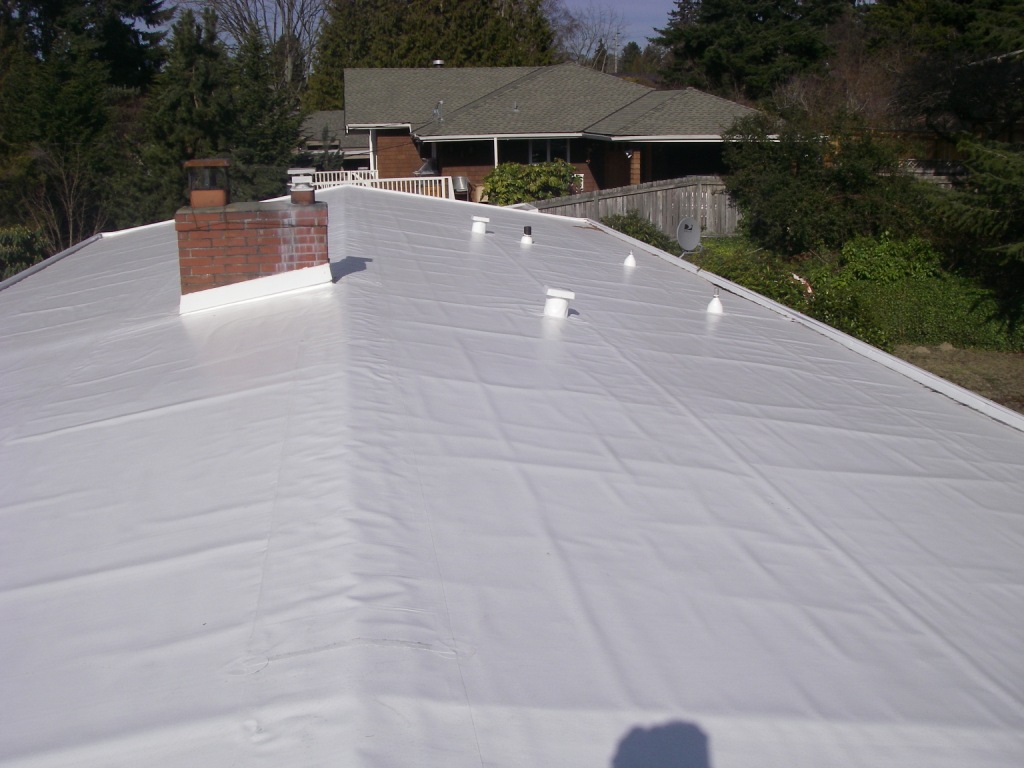TPO, a thermoplastic polyolefin-based blend; is defined as a new technological product that offers a long service life due to its resistance to sunlight, atmospheric conditions, and plant roots, as well as its high puncture, tear, and abrasion resistance. Technological waterproofing cover TPO membranes, which are applied by stitching with hot air sources, also draw attention to their rapid growth potential in the roof and waterproofing sector. It has been observed that TPO membranes provide durability for up to 20-30 years as a result of the tests.
TPO Membrane Advantages



- One of the biggest factors in their preference is that they have long durability. It is known that one of the most important features of TPO membranes is that they do not use plasticizers to gain flexibility like PVC membranes. Thanks to their polyolefin structure, TPO membranes provide the advantages of very high durability and high elasticity throughout their lifetime.
- TPO membranes, when compared to other membranes; It is an environmentally friendly product because it does not contain any toxic or harmful substances.
- Provides high energy savings as it has a heat reflective feature.
- TPO membranes have a very low impact on the environment due to their recyclable properties.
- Through its high reflectivity feature reduces the energy consumption of the buildings. It can be used by laying freely on concrete and exceptionally light metal roofs. It is resistant to all kinds of atmospheric conditions and sunlight. It reduces the energy consumption of the buildings thanks to its comprehensive production, fast and economical application, high tear resistance of the reinforcement material, and high reflectivity.
Technical Information
- Product width is 1.57-1.60 mm.
- Tear resistance is 300 N while 180 N is sufficient according to EN 12310-2 standard.
- While the tensile strength is 800 N/50mm, it is at least 1100 N/50mm.
- While the impact strength is 400 N/mm, it is at least 700 N/mm.
PVC Membrane Roofing
PVC membrane is an abbreviation for the composition of “polyvinyl chloride”. PVC is a chemical component made by combining salt and crude oil. PVC is a chemical used as a good insulation and repair material. In recent years, it is possible to find solutions to the problems of fine details in construction works of pivisi membrane, which has been used in many different areas of the construction industry and has many different application areas. Through the PVC membrane, which is the last layer coating process, the service life of the roof is extended. PVC membrane, which increases the thermal insulation efficiency, is a very useful and useful application. PVC membrane advantages;- Provides advanced thermal insulation thanks to its chemical properties. Therefore, it prevents heat losses and helps to save energy.
- Chlorine content not only prevents it from igniting but also gives the property of extinguishing in a short time in case of ignition.
- It is lighter and more useful than aluminum and wood. Therefore, it can be used easily in situations where it is not desired to put a load on the buildings.
- By providing sound insulation, prevents noise pollution.
- It is a product that can be used in almost all kinds of construction and technical fields.
- It is environmentally friendly thanks to its recycling and therefore reusable feature.
- Easy cleaning and low maintenance features provide ease of use.



 1366X768
1366X768